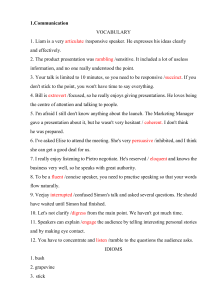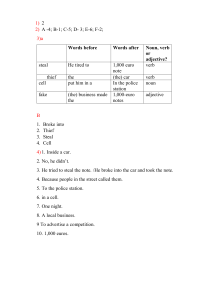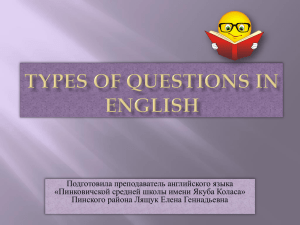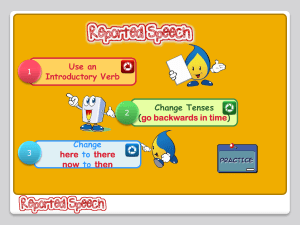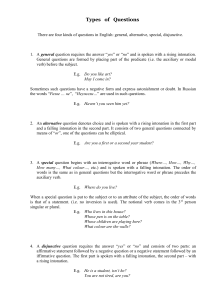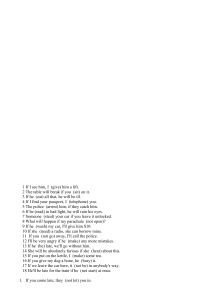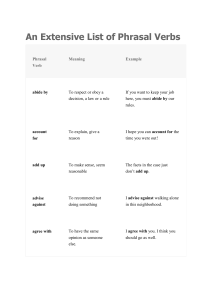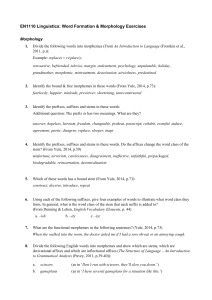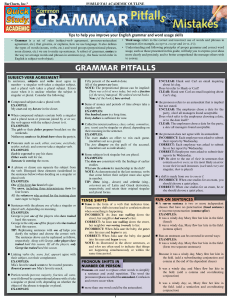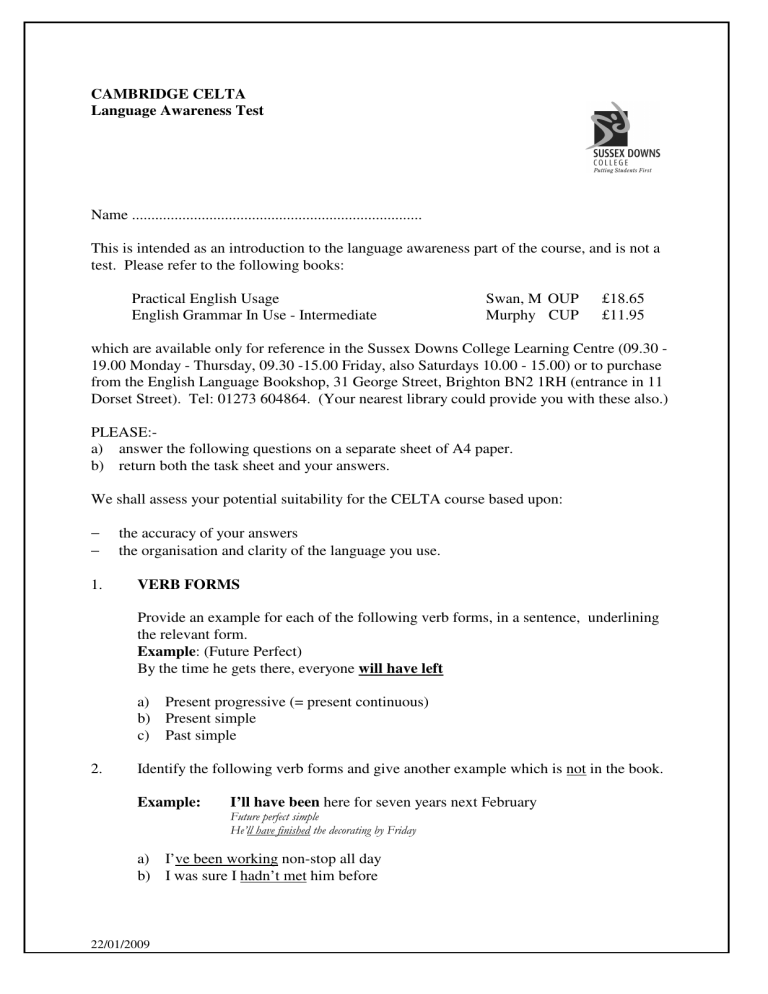
CAMBRIDGE CELTA Language Awareness Test Name ........................................................................... This is intended as an introduction to the language awareness part of the course, and is not a test. Please refer to the following books: Practical English Usage English Grammar In Use - Intermediate Swan, M OUP Murphy CUP £18.65 £11.95 which are available only for reference in the Sussex Downs College Learning Centre (09.30 19.00 Monday - Thursday, 09.30 -15.00 Friday, also Saturdays 10.00 - 15.00) or to purchase from the English Language Bookshop, 31 George Street, Brighton BN2 1RH (entrance in 11 Dorset Street). Tel: 01273 604864. (Your nearest library could provide you with these also.) PLEASE:a) answer the following questions on a separate sheet of A4 paper. b) return both the task sheet and your answers. We shall assess your potential suitability for the CELTA course based upon: − − 1. the accuracy of your answers the organisation and clarity of the language you use. VERB FORMS Provide an example for each of the following verb forms, in a sentence, underlining the relevant form. Example: (Future Perfect) By the time he gets there, everyone will have left a) Present progressive (= present continuous) b) Present simple c) Past simple 2. Identify the following verb forms and give another example which is not in the book. Example: I’ll have been here for seven years next February a) I’ve been working non-stop all day b) I was sure I hadn’t met him before 22/01/2009 3. Explain the use of each of the following modal verbs. e.g. He will contradict me all the time - insistence a) b) c) d) e) f) g) 4. I’ll take you to the station. There will be a lot of people at the station. He should be back by lunch time. You should see a dentist. Should you have any further queries don’t hesitate to contact us. You must try the new restaurant in Station Road. You must stop smoking. VOCABULARY The following words create difficulties for learners of English. Please imagine you are explaining the differences between them, to a student whose English is limited. Think very carefully how you need to simplify and grade your own language in order for the student to understand you. You could use diagrams, pictures, etc., where appropriate, in which case you could explain by saying “I would show her/him a picture of ........”. This is a bad example:“We use ‘slim’ to illustrate that the person is of an acceptable appearance and weight,” because if the student can understand ‘illustrate’ and ‘acceptable appearance and weight’ they will certainly already know ‘slim’ and ‘thin’. Try to put yourself in the position of the student and ask yourself for example, ‘Would I understand this explanation it if I were learning another language?’ What is the difference in meaning between:a) a slim person and a thin person?’ b) a fit person and a healthy person?’ c) renting a room and hiring a room?’ 5. LANGUAGE FUNCTION Here is one way you might ask someone for permission to close a window. ‘Ok if I shut this window?’ Please give two more different ways of asking for permission to close a window. In what situations would you use your examples? 22/01/2009 6. SENTENCE STRESS Explain the difference in meaning between the following pairs of sentences. The first sentence is neutral and in the second the word in capitals is heavily stressed. a) b) c) d) 7. How are you? How are YOU? Could you lend me one? Could you LEND me one? VOWELS Look at the following list and pair the words that have the same vowel sound: Example : sad - match seat love bin dawn 8. still laugh heart cup friend wash pool heard bread could put meat four soup turn hot The realities of the course Which of the following aspects of the course do you think create the most/fewest difficulties for trainees on the CELTA course? Please number them from 1 (fewest difficulties) to 10 most difficulties, and write why you think this might be the case. a) b) c) d) e) f) g) h) i) j) 22/01/2009 Feeling relaxed when teaching the class of foreign students, with fellow trainees and a trainer observing. Providing a motivating presence i.e. being enthusiastic, lively and responsive when teaching. Getting to sessions on time. Organising the rest of their lives around the course. Satisfactorily completing the written tasks to a deadline. Analysing language for teaching purposes. Talking too much - not providing students with enough opportunities to speak. Being able to absorb information and put it into practice, within the time limitations of the course. Using language that is too complicated for the students to understand, when giving instructions, answering questions etc. Working with fellow trainees.
